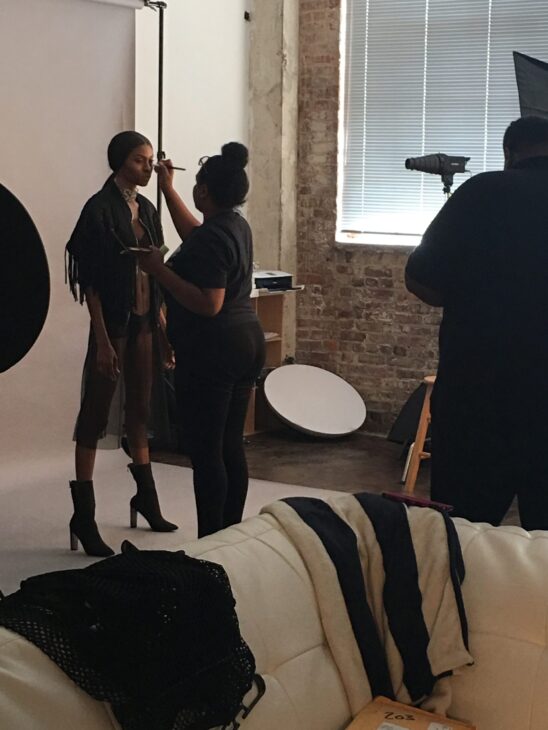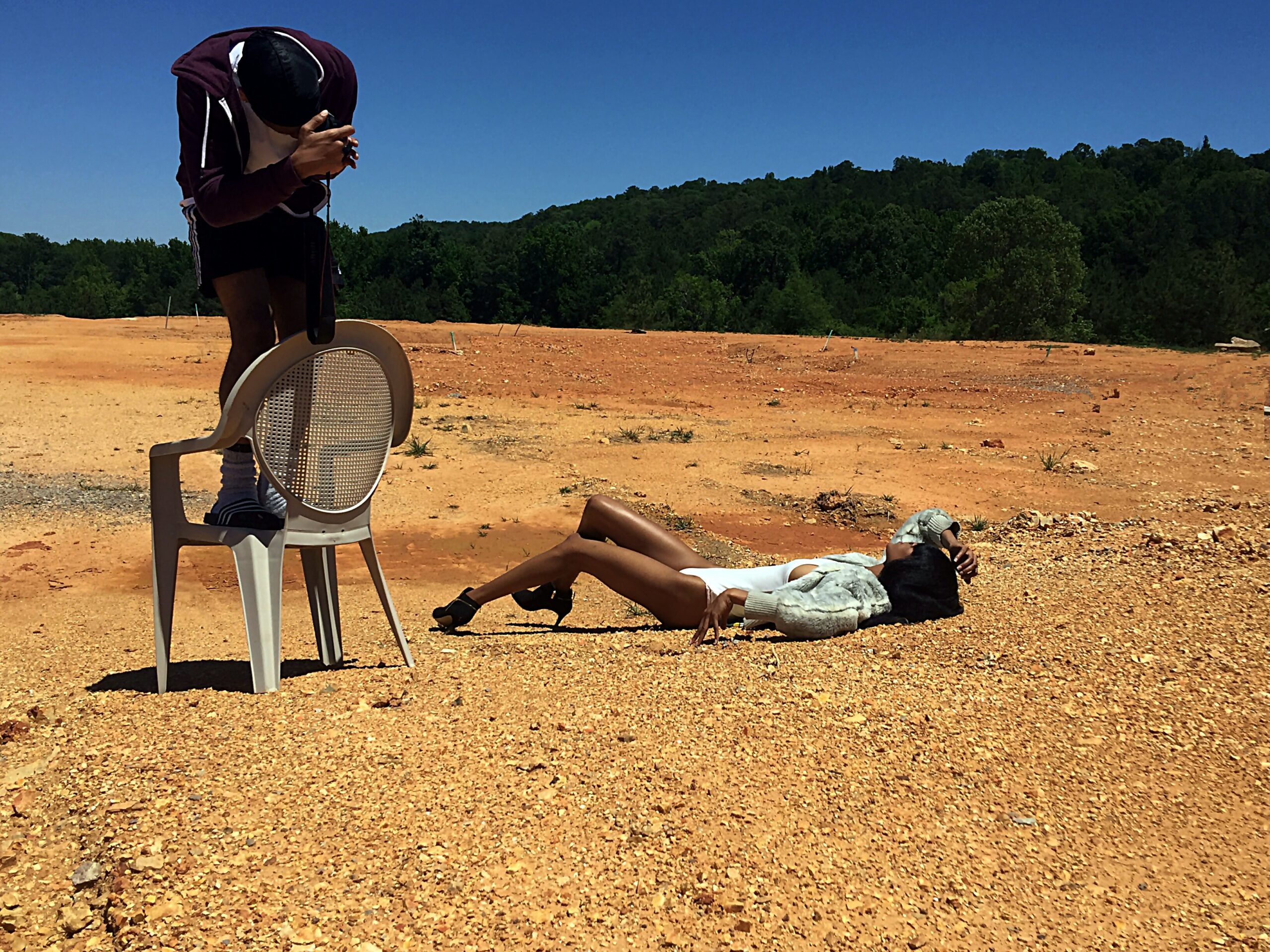The gentle guide to protecting yourself while pursuing your dreams
When I first started modeling, contracts felt like intimidating legal documents written in a language I didn’t quite understand. I remember sitting in that first meeting at Click Models, staring at pages of fine print, feeling overwhelmed and frankly, a little scared to ask too many questions. I thought asking for clarification might make me seem unprofessional or difficult to work with.
Looking back, I wish someone had taken the time to explain these documents to me in simple, caring terms. Today, I want to be that voice for you—the one I needed when I was just starting out.
Whether you’re just starting out or you’ve been modeling for years, remember this: you have the right to understand every agreement you enter into. You have the right to ask questions, to negotiate, and to walk away if something doesn’t feel right.
Why Contracts Matter More Than You Think
Here’s something I’ve learned through experience: contracts aren’t just legal formalities. They’re your safety net, your boundary setter, and honestly, your best friend in this industry. Every single opportunity, whether it’s with a major agency like Click Models or an independent photographer, comes with expectations. A good contract simply makes those expectations crystal clear for everyone involved.
Think of it this way—when you’re excited about a potential job (and trust me, I know that feeling), it’s easy to say yes to everything without fully understanding what you’re agreeing to. Contracts protect that enthusiastic version of yourself by ensuring you know exactly what you’re walking into.


Agency Contracts: The Foundation of Your Career
What They Really Mean
When I signed with Click Models, I was signing up for representation. This meant they would find me work, negotiate rates, and handle the business side while I focused on the creative. But here’s what I didn’t fully grasp at first: I was also agreeing to give them a percentage of everything I earned through their connections for a specific period.
Key elements you’ll find in agency contracts:
- Exclusivity clauses – Some agencies want to be your only representation in certain markets
- Commission rates – Typically 10-20% of your earnings
- Territory restrictions – Where you can and cannot work independently
- Duration – How long you’re committed to the relationship
- Image usage rights – How your photos can be used for agency promotion
Understanding Exclusive vs. Non-Exclusive Representation
This is one of the most important distinctions you’ll encounter, and honestly, it took me a while to fully understand the implications.
Exclusive contracts mean the agency has the sole right to represent you in specific markets or territories. This can be:
- Worldwide exclusive – They’re your only agency everywhere
- Market exclusive – They’re your only agency in specific cities (like New York or Los Angeles)
- Category exclusive – They handle only certain types of work (fashion vs. commercial)
Non-exclusive contracts allow you to work with multiple agencies simultaneously, as long as they’re not competing for the same jobs.
When Click Models first approached me, they wanted exclusive representation in certain markets. At the time, I thought this sounded impressive—like they really believed in me. But what I didn’t realize was how much this would limit my ability to pursue other opportunities in those areas.
The reality of exclusive contracts:
- You might miss out on jobs your agency doesn’t pursue or isn’t right for
- You’re putting all your eggs in one basket for that market
- The agency has less incentive to work hard since they don’t have competition
- You have less negotiating power if things aren’t working out
The benefits of non-exclusive arrangements:
Easier to transition if one relationship isn’t working
Multiple agencies working to find you jobs
More diverse opportunities
Better leverage in negotiations
The Questions I Wish I’d Asked
- “What happens if I want to take on a project you haven’t arranged?”
- “Can I work with other agencies in different cities?”
- “How much notice do I need to give if this isn’t working out?”
- “What support will you provide for my career development?”
- “Is this exclusive or non-exclusive representation?”
- “If it’s exclusive, can we start with a shorter trial period?”
Don’t be afraid to ask these questions. A good agency wants you to understand exactly what you’re agreeing to.

Reality TV Contracts: A Whole Different World
I’ve been offered spots on several reality shows, and let me tell you—these contracts are in a league of their own. The first time I read through one, I couldn’t believe what I was seeing. The level of control they wanted over my life, my image, and my future was honestly shocking.
Reality TV contracts often include:
- Exclusive rights to your story for the duration of filming and beyond
- Restrictions on what you can say publicly about the show, other participants, or your experience
- Image and likeness rights that can extend far beyond the show’s air date
- Behavior clauses that dictate how you can act both on and off camera
- Non-compete agreements that might limit your other professional opportunities
The Reality Check I Needed
Here’s what I learned: reality TV contracts are designed to protect the production company, not you. That doesn’t make them inherently bad, but it does mean you need to go in with your eyes wide open.
Before signing anything like this, ask yourself: “Am I comfortable with potentially losing control over how my story is told?” Because once you sign, that’s exactly what might happen.

Freelance vs. Independent Modeling: Know Your Options
Working as a Freelancer
When you’re freelancing, each job typically comes with its own contract or agreement. These are usually simpler than agency contracts, but they still need your attention.
Common freelance contract elements:
- Scope of work – What exactly are you being hired to do?
- Usage rights – Where and how will the images be used?
- Payment terms – When and how you’ll be paid
- Cancellation policies – What happens if someone needs to back out?
- Wardrobe and styling responsibilities – Who’s providing what?
Going Completely Independent
As an independent model, you have more control, but also more responsibility. You’ll need to create your own contracts for different types of work. This is actually where I’ve found the most freedom in my career—when I learned to advocate for myself professionally.
Your dreams are worth protecting, and understanding your contracts is one of the most important ways to do exactly that.
Contract Terms That Should Make You Pause
Through my years in this industry, I’ve encountered some contract clauses that gave me serious pause. Here are the red flags I’ve learned to watch for:
1. Unreasonable Usage Rights
If a contract asks for unlimited usage rights in perpetuity for a small fee, that’s concerning. Your image has value, and how it’s used should reflect that.
2. Vague Payment Terms
“Payment upon completion” isn’t specific enough. When exactly will you be paid? What’s the process if payment is late?
3. Excessive Control Clauses
Any contract that tries to control your personal life, who you can date, where you can go, or what you can say publicly deserves serious scrutiny.
4. Automatic Renewal Clauses
Some contracts automatically renew unless you give notice months in advance. Make sure you understand these timelines.

The Contract Conversation: How to Advocate for Yourself
Before the Meeting
- Read everything thoroughly, even if it takes hours
- Write down questions as they come up
- Research industry standards for whatever you’re being offered
During the Discussion
- Ask for clarification on anything that confuses you
- Don’t be afraid to negotiate—most terms aren’t set in stone
- Take notes on what’s discussed
After You Sign
- Keep copies of everything
- Set reminders for important dates (renewal periods, notice deadlines)
- Check in regularly to make sure the other party is holding up their end
Building Your Contract Toolkit
Over the years, I’ve developed templates and checklists that have saved me countless headaches. In my digital boutique, I’m sharing a comprehensive model contract template that covers the essentials for freelance work. It’s designed to protect you while remaining professional and fair to clients.
What you’ll find in the template:
- Clear usage rights language
- Payment protection clauses
- Professional boundaries
- Cancellation policies that work for both parties
The Emotional Side of Contracts
Let me be honest with you—there’s an emotional component to all of this that nobody really talks about. When you’re passionate about modeling, when you’re excited about opportunities, it can feel almost insulting to slow down and scrutinize every detail of a contract.
I used to worry that asking too many questions or requesting changes would make me seem difficult or ungrateful. But here’s what I’ve learned: professionals respect other professionals who know their worth and protect their interests.
The most successful, longest-lasting relationships I’ve had in this industry have been with people who appreciated my thoroughness from the beginning. The ones who got frustrated with my questions? Those relationships usually didn’t work out well anyway.
Your Career, Your Rules
As I’ve grown in this industry, I’ve realized that understanding contracts isn’t just about legal protection—it’s about professional empowerment. When you truly understand what you’re agreeing to, you can make decisions that align with your values and your career goals.
Whether you’re just starting out or you’ve been modeling for years, remember this: you have the right to understand every agreement you enter into. You have the right to ask questions, to negotiate, and to walk away if something doesn’t feel right.
Moving Forward with Confidence
The modeling industry can feel overwhelming, especially when you’re facing stacks of legal documents. But remember, every successful model has been exactly where you are right now. We’ve all had to learn these lessons, ask these questions, and make these decisions.
Take your time. Ask for help when you need it. Trust your instincts. And remember, any opportunity that’s right for you will still be right for you after you’ve taken the time to fully understand the commitment.
Your dreams are worth protecting, and understanding your contracts is one of the most important ways to do exactly that.
Have questions about a specific contract situation? I’d love to help. Reach out through my contact page, and remember—there’s no such thing as a silly question when it comes to protecting your career.
Resources:
- Download the Model Contract Template in The Model Boutique
- Book a consultation for contract review here
- Join our community discussions about industry experiences here



